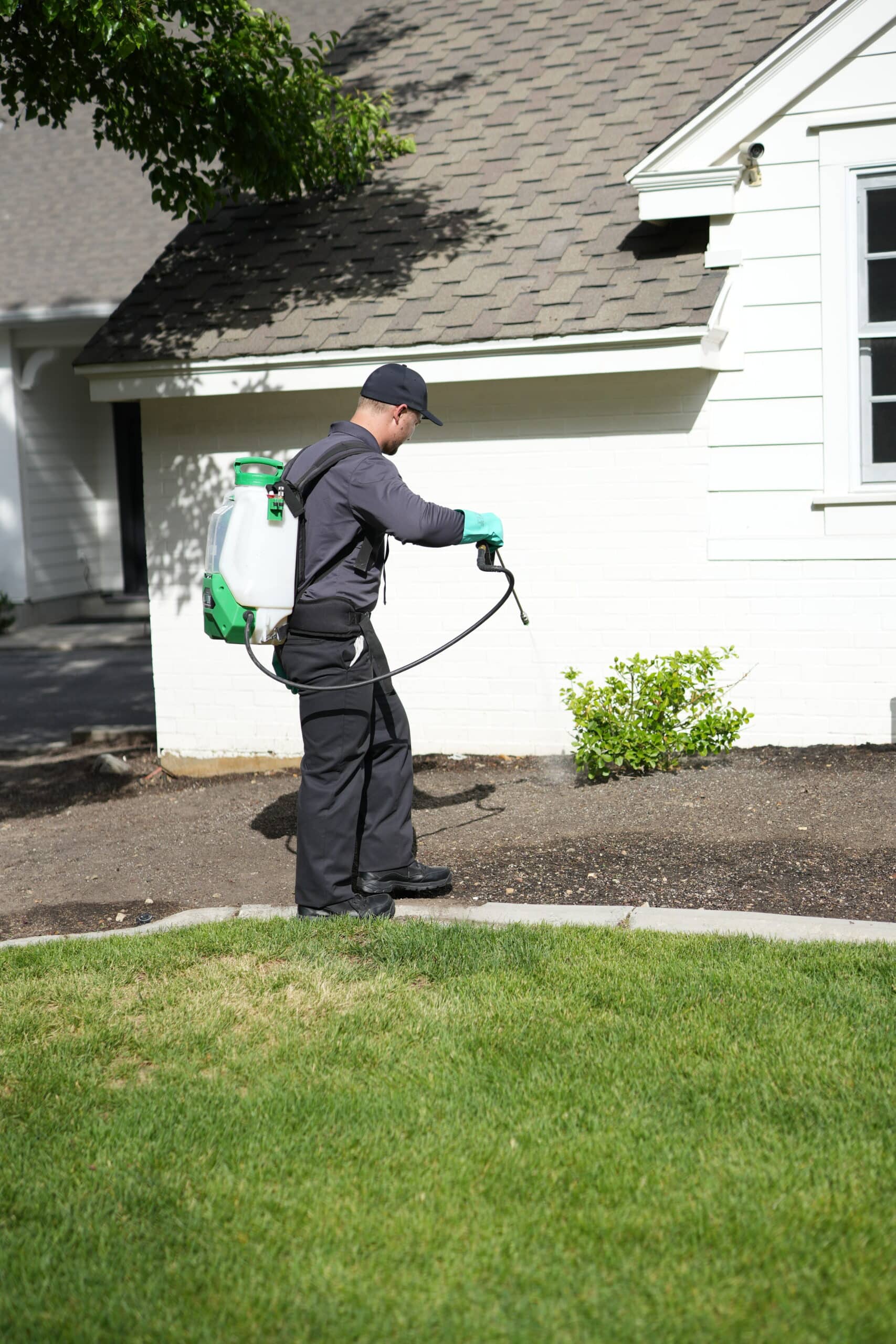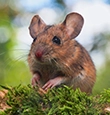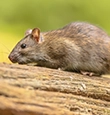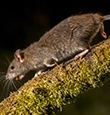Rodent Facts & Information
Hawx is always reliable. Always innovative.
20,000+ 5-STAR REVIEWS
“Connors Trader went the extra mile to make sure he listened to our needs regarding the ant problem we had.”
- Larry
“He sprayed indoors and out, swept my eaves for spider webs and took care of a couple of wasp nests.”
- Rick
“He even sprayed on my deck, which no one else has done.”
- Sue

It’s estimated that about 11% of U.S. households experience some form of rodent problem annually, translating to more than 14.8 million affected homes. Rodents don’t just cause property damage—they can also pose serious health risks. Mice and rats are known to spread diseases, contaminate food, and trigger allergies or asthma, especially in children.
Recognizing how rodents gain access to your space, what draws them to your home in the first place, and how they nest or feed can help you tackle your rodent problem before it gets a lot worse.
Looking for a solution to your rodent issues? Choose Hawx Pest Control and make sure the job is done right the first time. Dial (888) 372-9514 today to schedule an inspection and first treatment appointment.
Common Rodent Species Across the U.S.
In the Northeast, house mice are the most common offenders, followed by Norway rats. More rural or wooded zones might see deer mice or white-footed mice sneaking indoors during colder months. Roof rats prefer warmer climates and rarely venture into northern interior states.
The Midwest has a similar lineup—house mice and Norway rats top the list, while deer mice often enter barns and garages in fall and winter. Like the Northeast, roof rats are largely absent due to cooler weather.
In the Southern states, including the Southeast and Gulf Coast, all major commensal rodents thrive. House mice and Norway rats remain common, while the warmer climate attracts roof rats (or black rats). In rural Southern areas, woodrats (pack rats) or cotton mice might show up, though house mice and rats are still the big two.
The Western U.S. sees a mix depending on climate. Coastal regions (like California, Oregon, and Washington) often battle Norway rats in urban environments, with roof rats especially prevalent in coastal California. House mice are an ongoing issue, too. In desert areas such as Arizona or New Mexico, pack rats can invade garages and vehicles, and deer mice move indoors in rural spots.
What Attracts Rodents to Your Home?
Rodents stay active all year, but they’re especially motivated to come inside when temperatures drop. In late summer and fall, mice and rats search out warm, cozy places—like your garage, basement, or kitchen—leading to spikes in rodent sightings. In harsh winter climates, the colder it gets, the more determined they are to get indoors.
Food and shelter also play a major role. Unsealed leftovers, pet food in bowls overnight, or poorly secured trash cans are big draws. Cluttered rooms, garages, and yards full of debris or vegetation offer excellent hiding and nesting spots. Once inside, if they find convenient food sources and nesting materials, rodents may decide to alert their companions and stick around for good.
Rodent Diet & Nesting Habits
Mice and rats are mostly nocturnal, so at night, they venture out, hug the walls, and rummage for snacks. They’ll eat practically anything—crumbs on the floor, open food items, stray pet food, and spilled trash.
Nesting sites depend on the species, though. Mice often favor warm spots near kitchens, shredding paper or fabric for their bedding. Norway rats tend to gravitate to basements or lower levels, while roof rats climb into attics or upper floors. In garages or outbuildings, you might even find nests tucked into old furniture or stored vehicles—especially in desert areas where pack rats are common.
Bottom line: Whatever the rodent, they’ll use any fibrous material around to build a comfy nest.

“Unfortunately, rodents are probably the most difficult pest to control. Unlike insects and spiders, rats and mice are decision-making pests. Rodents are social, emotional, inquisitive, they play, they’re intelligent, and their behavior can adjust based on what you try to incorporate into their environment (particularly the roof rat).
Mice don’t tend to be as hesitant to go near new things, so new pest-control devices in their environment might be more effective than with rats.
In short, rodents find where the reward is highest and the risk is lowest. ”
Vice President of Technical & Training Services, Entomologist
Signs of a Rodent Infestation
Rodents are skittish creatures and may hide during the day, but they leave plenty of clues. Here are some signs you might have a mouse or rat infestation:
Droppings: Mouse droppings resemble dark grains of rice, while rat droppings are bigger.
Gnaw Marks & Chew Damage: Rodents file down their teeth by gnawing on wood, wires, or containers.
Nests:Look for piles of shredded paper, fabric, or insulation in corners or behind furniture.
Noises: Scratching, scurrying, or squeaking at night—often behind walls, ceilings, or appliances.
Odors: A strong, musky, or ammonia-like smell signals rodent urine buildup.
Tracks or Rub Marks: Dusty footprints, tail marks, or greasy rubs along baseboards or pipes.
Burrows or Holes: Norway rats often dig near foundations; new holes in walls or floors could mean new intruders.
How to Get Rid of Rodents in Your Home
- Seal Entry Points: Inspect your home for cracks, gaps, or holes where rodents might slip in. Use caulk, steel wool, or weather stripping to block them.
- Eliminate Food Sources: Store pantry items and pet food in sealed containers. Clean up spills and keep trash cans covered.
- Set Traps: Traditional snap traps or enclosed bait stations can help catch or kill rodents. Place them along walls and in areas where you’ve spotted signs of activity.
Let Hawx Handle Your Rodent Problem
Getting rid of mice, rats, or other rodents by yourself can be frustrating, time-consuming, and sometimes risky—especially if you’re dealing with a large or established population. And if you don’t seal up entry points properly, they may just come right back in.
Don’t try to do it on your own. Hawx Pest Control brings local expertise, cutting-edge tools, and proven strategies to root out rodents wherever they’re hiding. We don’t just tackle what you can see; we also find potential entry points, seal them up, and help you take measures to keep rodents away for good.
Contact Hawx Pest Control today for a thorough inspection and a personalized treatment plan. We’ll ensure your home is free from mice and rats, so you can get back to having a clean and healthy property.
Rodent Identification: What Are the Main Types of Household Rodents?
Rodents can vary widely from species to species, so it's important to know how to identify rodents that typically invade homes.
Read more about rodents

Identifying the Different Types of Rodents: The Ultimate Guide
Ever wonder what’s scurrying in your attic late at night? According to the United States Census Bureau, 14.8 million Americans reported seeing rodents in 2021

What Are Vole Traps, and How Do You Use Them?
What Are Vole Traps, and How Do You Use Them? Imagine walking through your garden on a bright, sunny morning, feeling the soft crunch of

Understanding the Differences: Mice vs. Rats
When it comes to pests, mice and rats are often the first critters that come to mind. While they might look somewhat similar at first
If your rat or mouse problem is getting out of hand, contact Hawx Pest Control today. We proudly provide rodent control throughout the country.




